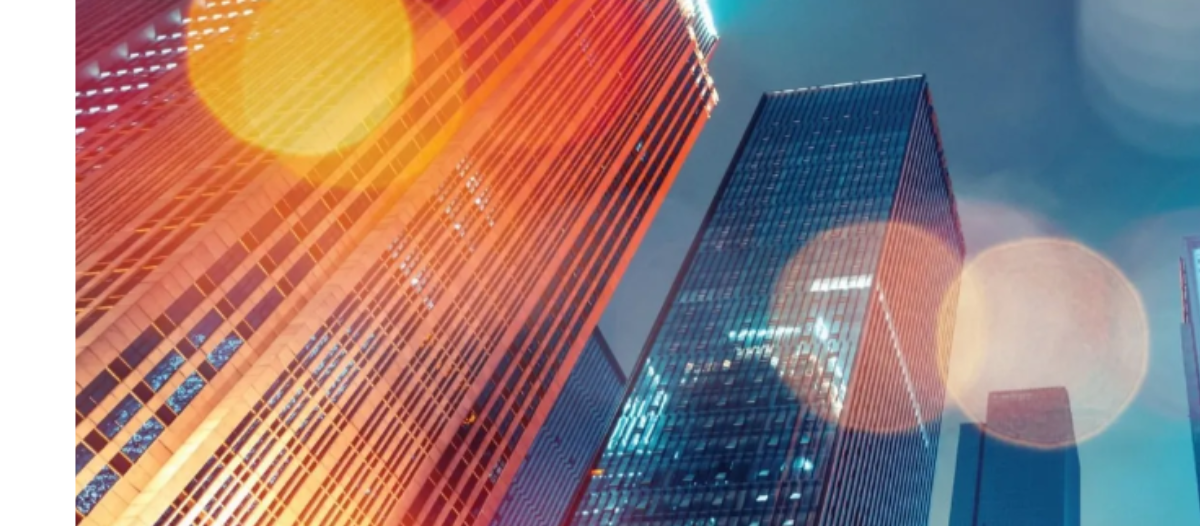Building Better Leaders in FM
The power of mentorship

Imagine a new facility coordinator preparing for their first emergency management briefing or walking into a capital planning meeting. They have studied, they are certified, but they still feel unsure. The technical knowledge is there, yet something critical is missing. What they need is not another manual or checklist, it is mentorship. Someone to say, “Here’s how I navigated this,” or “You’ve got this! Let’s walk through it together.”
Facility management success depends on navigating complex systems, communicating across departments and making confident decisions. This makes mentorship a professional necessity. Mentorship gives emerging professionals the clarity and direction they often need but may never ask for. It translates textbook learning into real-world judgment, strengthens emotional resilience in high-stakes situations, and builds the long-term leadership skills that the industry urgently needs.
Today’s highly technical and sustainability-focused FM landscape makes mentorship essential. Research-backed strategies are now emerging to ensure that mentorship in FM is not only accessible but structured, scalable and deeply effective.
A research-driven movement
IFMA, in partnership with the Simplar Foundation, is supporting the development of a personality and competency-based mentorship framework. This initiative draws on decades of experience, member data and fresh research, especially insights from IFMA’s Salary Report, Women in FM Report and FM Personalities Report.
Together, these reports reveal a compelling case for mentorship as a key enabler of FM career development and workforce retention:
-
Credentialed professionals consistently outperform their peers in salary, job performance and advancement. IFMA credential holders report an average 16:1 return on investment over five years and an average annual salary increase of US$5,400. Moreover, credentialed employees are significantly more likely to be promoted, with 40 percent receiving promotions after earning their credentials. Mentorship – whether formal or informal – often plays a quiet but powerful role in helping individuals prepare for credentialing, navigate challenges and visualize long-term career growth.
-
Women in FM who receive mentorship report markedly better outcomes across key retention and career progression factors. Women with mentors are significantly more confident in their job security (91 percent vs. 70 percent), report lower burnout and feel more supported by their employers. Mentorship also mitigates the impacts of negative factors such as age discrimination and lack of clarity around advancement, both of which disproportionately affect women leaving the profession before reaching senior levels.
-
IFMA’s FM Personalities Report shows that high-performing FMs — those with multiple IFMA credentials — tend to exhibit stronger personality traits like sociability, organization, creativity, gentleness and patience. These traits not only support technical excellence but also create stronger mentor-mentee relationships. For example, higher sociability and gentleness allow mentors to foster safer learning environments, while creativity and organization help mentees navigate complex FM responsibilities with confidence.
Mentorship builds the self-esteem and practical insight necessary for professionals to pursue advanced credentials. In turn, the pursuit of credentials improves performance and unlocks new leadership roles in which experienced FMs can then serve as mentors themselves. It is a self-sustaining cycle that builds both competence and community.
Human dimension (HD) matching: A new approach
What sets this mentorship framework apart is its use of human dimensions (HD), a data-driven approach that incorporates personality profiles into mentor-mentee pairing. It is based on tools such as HEXACO, EI and DISC assessments. Rather than matching participants randomly or only by job function, this model matches them based on:
-
Complementary personality traits
-
Shared professional interests
-
Sector-specific competencies
-
Years of experience
Through this approach, mentors are positioned as deliberately matched guides, tailored to complement the growth and learning style of their mentee.
From theory to implementation: How the program works
The mentorship framework is being piloted through IFMA chapters with support from participating mentors and mentees. Key design elements include:
-
Pre-matching assessments using human dimensions tools
-
Shared goal setting around FM’s core competencies
-
Periodic check-ins and guided conversation prompts
-
Post-program feedback loops to evaluate growth and outcomes
Early program participants report that mentorship is especially helpful in building skills that are hard to teach in classrooms, like stakeholder engagement, conflict resolution and crisis response.
Bridging the gap: Mentorship & capital project success
A surprising application of mentorship lies in capital project delivery. As recent research highlights, one of the costliest mistakes in construction is the late involvement of FM.
Projects without FM input during design often miss critical maintenance and operations requirements. Examples include inaccessible HVAC systems, omitted janitorial closets or incompatible equipment that requires costly rework. Mentorship can help change this narrative.
Early-career FMs — especially those not yet confident in construction processes — can benefit greatly from pairing with senior mentors who have walked through dozens of capital projects. These mentors can explain:
-
How to spot gaps in architectural plans
-
When to push back on design features that may hinder operations
-
Why life cycle cost analysis must start before the first RFP is issued
In short, mentorship fills the experience gap that textbooks and certifications cannot address alone.
The results
The measurable benefits of structured mentorship include:
-
Stronger retention: Professionals who feel supported are less likely to leave the industry.
-
Accelerated leadership development: Mentees are more likely to pursue credentials, lead initiatives and take ownership.
-
Increased confidence: Mentorship helps newer FM professionals manage fear, improve communication and grow their social self-esteem.
-
Cultural impact: Teams with mentorship cultures are more inclusive, collaborative and adaptable.
As mentorship relationships deepen, they help bridge not just skill gaps but confidence gaps. They create space for honest conversations, transferable insights and transformational growth.
Interviewing the experts: What makes a good mentor match?
Drawing inspiration from the FM Personalities and forthcoming Exemplary FM research studies, the IFMA mentorship program will use personality data to ask the right questions during onboarding, helping to spark honest conversations and meaningful connections. But asking good questions is only part of the equation. Personality research shows that mentorship needs can vary widely based on career stage, even among credentialed professionals.
For Mentors:
-
“What personality traits make you an effective leader?”
-
“Describe a time you guided someone through a facilities crisis.”
-
“How do you typically approach difficult conversations?”
For Mentees:
-
“What FM skills do you feel least confident in right now?”
-
“How do you prefer to receive feedback: direct or reflective?”
-
“Where do you see yourself in five years within the FM field?”
This structure helps set the stage for authentic, trust-based relationships, wherein knowledge transfer flows both ways. Yet not all mentorship needs are the same across career stages. According to Blueprints of Behavior, IFMA’s upcoming study on exemplary FMs, even credentialed professionals with up to 10 years of experience differ significantly from their senior peers in how they communicate, lead and engage with their teams. For instance:
-
Early-career FMs tend to have higher levels of reserved communication and lower social self-esteem, which can make it harder to advocate for ideas, manage stakeholders or step into visible leadership roles.
-
They also show higher fearfulness and greater anxiety, particularly when navigating unfamiliar or high-stakes environments – a common occurrence in facility management, for which emergencies and executive-level presentations are routine.
-
In contrast, late-career exemplary FMs (more than 20 years of experience) show stronger emotional regulation, more open communication and higher confidence when engaging in strategic discussions or leading multidisciplinary teams.
The takeaway? Even with the right credentials, early-career professionals benefit immensely from structured mentorship. Mentors not only help decode the “unwritten rules” of leadership – they model how to respond with calm, confidence and clarity in moments of pressure.
By recognizing the common personality shifts that occur with experience, mentorship programs can offer more personalized support, helping emerging FMs build the emotional agility, communication skills and leadership presence needed to thrive long-term.
A call to action: Embedding mentorship as a core FM strategy
Mentorship is more than an initiative. It should be a foundational pillar in how the FM profession develops its talent. Here is what organizations can do today:
-
Embed mentorship into onboarding programs for early-career FMs.
-
Incentivize credentialed FMs to serve as mentors through recognition or professional development credit.
-
Use personality and EI assessments to guide mentorship pairings, not just technical roles.
-
Integrate mentorship outcomes into performance reviews and succession planning.
The future of FM is built on people
This is not just about filling leadership pipelines. It is about shaping the culture of facility management one relationship at a time. Mentorship has the power to turn talent into impact, potential into performance. As the research progresses, IFMA will roll out a mentorship guidebook and match criteria that can be adopted by chapters around the world. This is mentorship made measurable, scalable and personal. FMs are expected to keep buildings resilient. However, they must be just as committed to keeping people resilient. Mentorship is not just how an industry prepares for the next generation, it is how it ensures the future of FM thrives.

Dr. Jake Smithwick is a professor at the University of North Carolina in Charlotte. His research focuses on organizational performance benchmarking within facility management, construction and the broader built environment. His industry experience also includes field inspection of nearly 2,000 waterproofing systems (74 million square feet) across the United States and six years in the U.S. Air Force Reserve civil engineering squadron.

Juliana Somuah is a distinguished Ph.D. researcher in Infrastructure and Environmental Systems at UNC Charlotte, with a master’s in construction and facilities engineering. A two-time IFMA Foundation scholar and winner of the 2024 Ignite FM Student Challenge, she has led and contributed to major IFMA projects on benchmarking, leadership and workplace strategy. Somuah is a major contributor to an AI-driven initiative for IFMA Engage and is launching a personality-based mentorship program for FM professionals. A former student outreach chair and treasurer for IFMA Charlotte’s student chapter, her work champions sustainability, inclusion and research-driven leadership across the global facility management landscape.
Read more on Leadership & Strategy , Career Advancement and World Workplace 2025 or related topics Communication Skills , Influencing and Workforce Development
Explore All FMJ Topics








